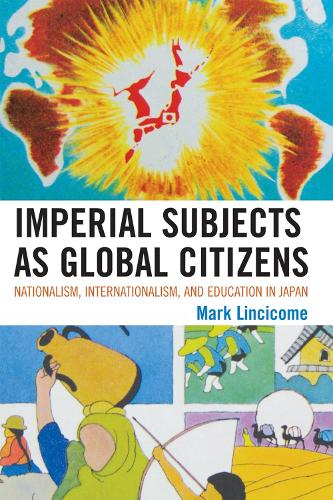
Imperial Subjects as Global Citizens: Nationalism, Internationalism, and Education in Japan
(Paperback)
Publishing Details
Imperial Subjects as Global Citizens: Nationalism, Internationalism, and Education in Japan
By (Author) Mark Lincicome
Bloomsbury Publishing PLC
Lexington Books
16th February 2009
United States
Classifications
Professional and Scholarly
Non Fiction
Asian history
Social and cultural anthropology
379.52
Physical Properties
Paperback
242
Width 155mm, Height 229mm, Spine 15mm
392g
Description
Lincicome offers a new perspective on Japanese educational debates and policy reforms that have taken place under the guise of internationalization since the mid-1980s. By contextualizing these developments within a historical framework spanning the entire twentieth century, he challenges the argument put forward by education officials, conservative politicians, and their supporters in the academy and the business world that history offers no guide for addressing the educational challenges that face contemporary Japan.
Combining diachronic and synchronic approaches, Lincicome analyzes repeated attempts throughout the twentieth century to internationalize education (/kyoiku no kokusaika/) in Japan. This comparison reveals important similarities that transcend educational policy to encompass Japanese conceptions of individual, national, and international identity; relations between the individual, the nation, the state, and the international community; and the type of education best suited to negotiating multiple identities among the next generation of Japanese subject-citizens.
Reviews
Very readable and well designed....The fresh perspective the book offers on vital issues of nationalism and internationalism will ensure that it will be read by anyone with an interest in education in Japan, past, present, or future. * The Journal of Japanese Studies *
Lincicome brings the steady hand of a practiced historian to one of the most explosive issues in contemporary Japan: educational reform. Following the vicissitudes of national education from the nineteenth century to the present, the author finds one constant: vociferous debate over how to fashion "Japanese citizens of the world." As this thought-provoking study adroitly reveals, there is never a clear separation between internationalism and cultural pride in Japanese national discourse, nor a clean victory for either. -- Frederick R. Dickinson, University of Pennsylvania
The depth with which Lincicome analyzes this public policy issue is unexpected for a historical monograph. * American Historical Review *
Author Bio
Mark Lincicome is an associate professor of history and director of the study abroad program at the College of the Holy Cross, Worcester, MA.
